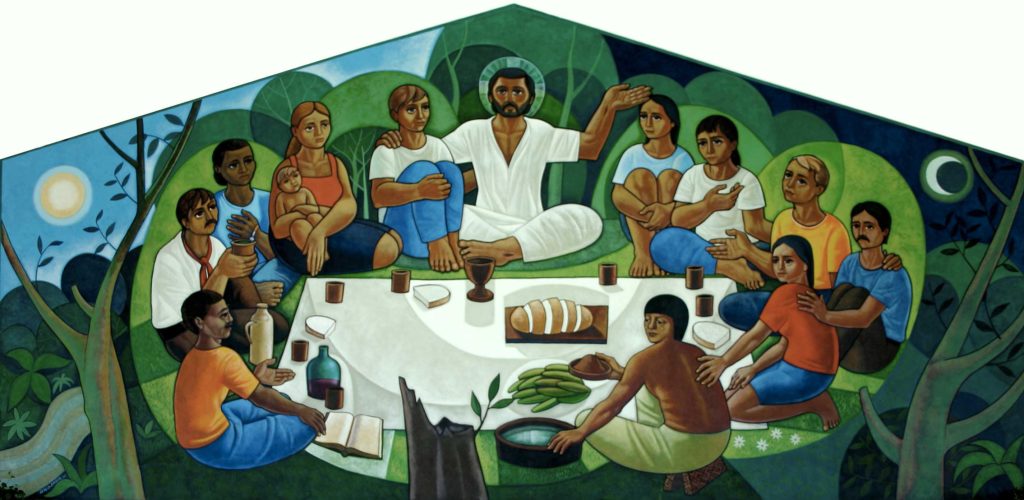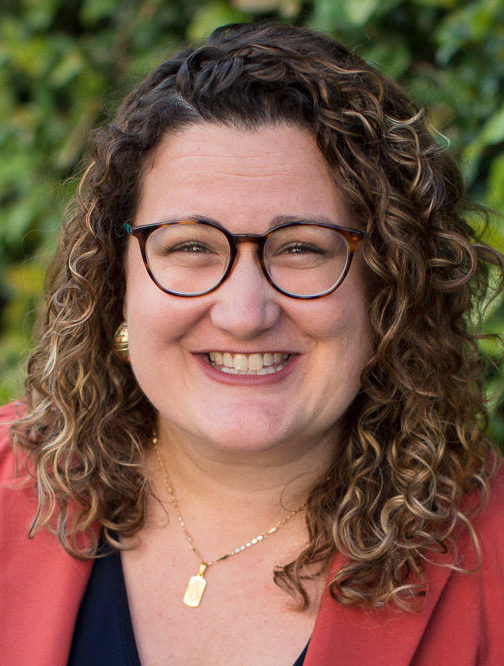
On days like today, it’s hard to be Christian. Following the advice often attributed to Karl Barth, I aim to be the kind of Christian who lives her faith with the newspaper in one hand and the Gospels in the other. As the realities to which articles like this one and this one point seem to press in on us, it’s hard to know how to live into the Good News. I’m reminded of the question one of our Encuentro students asked as we moved from our time in Laredo to our time in Austin: “How will we know what we don’t know?” Embracing the humility in that question, I’d like to explore what it means to be a Christian in times of crisis with compassionate curiosity.
As we learn about the gravity of climate catastrophe and the migration crisis, many of us are moved to acquire as much information as we can about the nature of the problem, in the interest of discerning the most appropriate solution. While this can be an honorable intention, it assumes one solution, and it can provoke a kind of analysis paralysis. In the face of this temptation, it can be helpful for us to acknowledge that we have inherited the structures of sin that birthed these crises. By virtue of living in the United States, we benefit from these sinful structures remaining as they are, unchallenged. However, we cannot let our understandings of the gravity of these situations lead us to believe the lie that our efforts are necessarily futile.
Another temptation is to point to examples of Christian living that fail to witness to the reality of God’s love, throwing our arms up in despair. While it is important to name our grief over the ways in which our faith is abused, I worry that focusing too long on these poor examples saps us of our energy, energy that could be used to dream together about what our Christian witness might look like.
In times like these, it is especially important for us to remember what is true. Each of us in our own ways and all of us together are called to live into the truth of our Christian faith. Fortunately for us, Christian truth lived and moved and had his being in the person of Jesus. And the ideas we have about the shape Christian truth should take must be rooted in right relationship with him. If our faith truly is to seek understanding, if we are to theologize, we are called to start by nurturing that relationship.
During our Encuentro course this January, we talked about the political nature of the Bible. The Bible is not partisan; it will not dictate to us for whom we should cast our vote in the next election. But it is deeply political in ways that we as Christians living in the United States would do well to continue to get to know. Our salvation history is filled with stories of oppression and domination, of marginalized peoples discerning how to survive and how to live their faith in the wake of unjust rulers. Jesus was born in the midst of Rome’s occupation of his family’s homeland. The Gospel of Matthew tells us that shortly after his birth, his parents sought refuge in Egypt, fearing for his safety, responding to Herod’s threat against the children of his community. When Jesus began his public ministry, those who heard him did not acknowledge his authority, in part because he had grown up the son of a carpenter in the backwater town of Nazareth. The truth of his witness was so piercing that those in positions of political and religious authority in Jerusalem colluded in putting him to death. What would it look like for us to acknowledge the political nature of our most sacred texts, to allow that to guide us as we live into our own roles in the history of salvation?
As I discern my own response to this question, I am reminded of the gift Jesus gave his mother and the Beloved Disciple as they wept at the foot of his cross. Not until he knew that they would accompany one another on the journey ahead did he breathe his last. What would it look like for us to live into that legacy?
I often remind myself that the reality of suffering—of our migrant siblings; of the earth, our common home; of Black and Brown-bodied folks; of women; of our queer kin; of those who are disabled—is interconnected. We’re not here to compete with one another in what some have called the Oppression Olympics. If we are to live into the freedom to which the Resurrection invites us, the truth of Jesus’ witness on the cross invites us to do so together.
For spiritual sustenance, I’m curious about what it would be like for us to return regularly to this prayer often attributed to Óscar Romero. To my mind, it models the kind of stewardship to which we are called. Its wisdom can help us remember that we are neither obligated to heal every social ill nor given a pass to ignore them; this prayer reminds us that we are responsible for taking the first step, to do what we can where we are, even if we’re not sure where that step will lead us.
What is one thing we can do this week that reflects our commitment to our faith during these troubled times?
Who can we invite to join us in discerning what we will do next week to honor this commitment?
This spring, we will continue to devote Sowing Holy Questions to issues of stewardship, now giving special attention to the role of humans–and the calling of Christians–as stewards or trustees of the non-human creation around us.

Jennifer Owens-Jofré, PhD, serves as Assistant Professor of Latinx Theology and Cultures and Director of the Latinx Studies Program at Seminary of the Southwest in Austin, TX. A Latina Catholic theologian, she completed her doctoral studies at the Graduate Theological Union in 2018 and was part of a postdoctoral fellowship with the Louisville Institute last academic year. This fall, she looks forward to speaking at Nevertheless She Preached. You can follow her writing online at her website.

